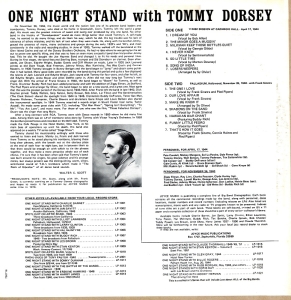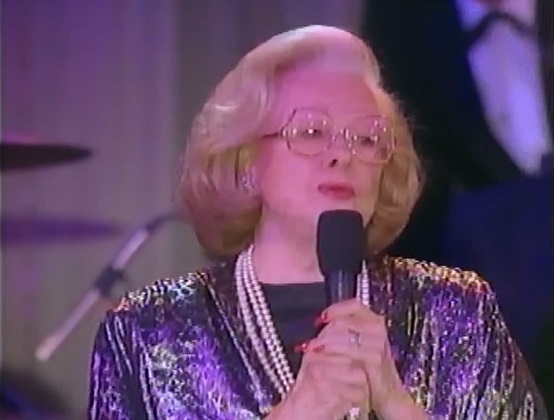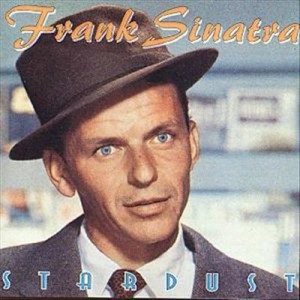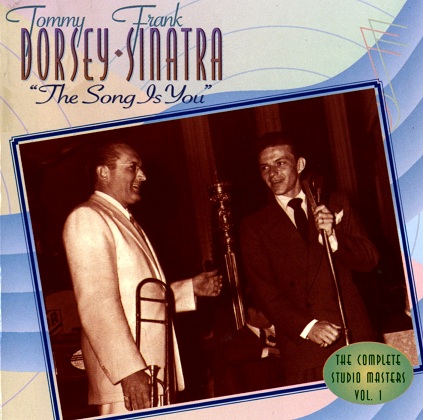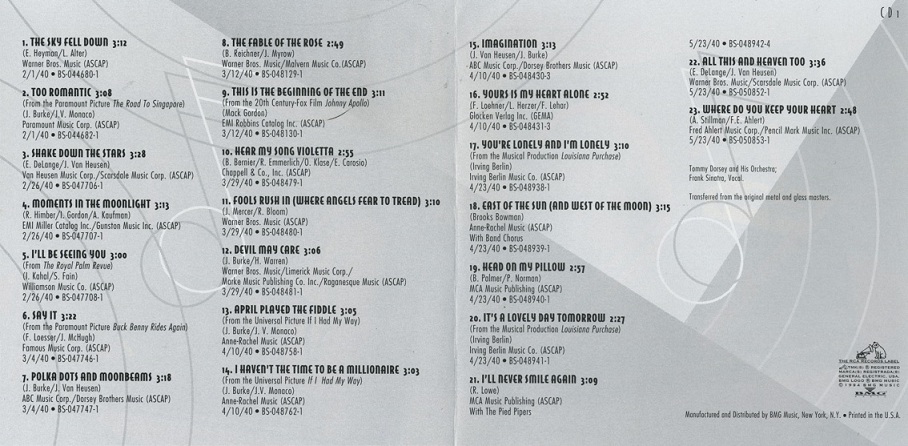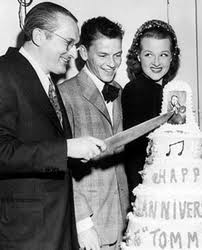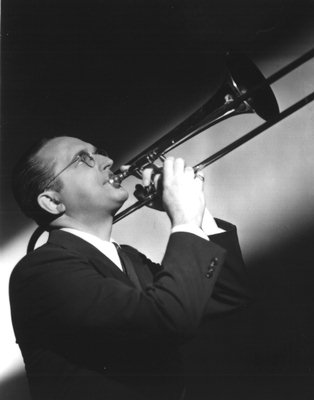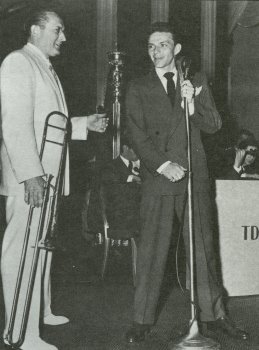26-11-1940 One Night Stand With Tommy Dorsey
Published by Joyce Music, One Night Stand With Tommy Dorsey features 14 songs.
These songs are as following:
I Dream Of You
The Minor Goes A Muggin’
Milkman Keep Those Bottles Quiet
I Never Knew
So Little Time
Song Of India
Losers Weepers
The One I Love
Our Love Affair
Make Me Know It
Shadows On The Sand
Hawaiian War Chant
Funny Little Pedro
That’s How It Goes
The quality of the recordings are good, listenable and enjoyable. There are no flactuations in the quality during the songs.
Only Our Love Affair, Shadows On The Sand and That’s How It Goes were sung by Frank Sinatra that night.
Our Love Affair offers you excellent orchestration, and singing by Tommy Dorsey’s band and Frank Sinatra. Definitely a must to listen.
Shadows On The Sand, just like Our Love Affair, is top quality.
That’s How It Goes is simply the wrong key for Sinatra.
2 good songs out of 3 for a broadcast from 1940 is better than we can hope for. Happy listening.



